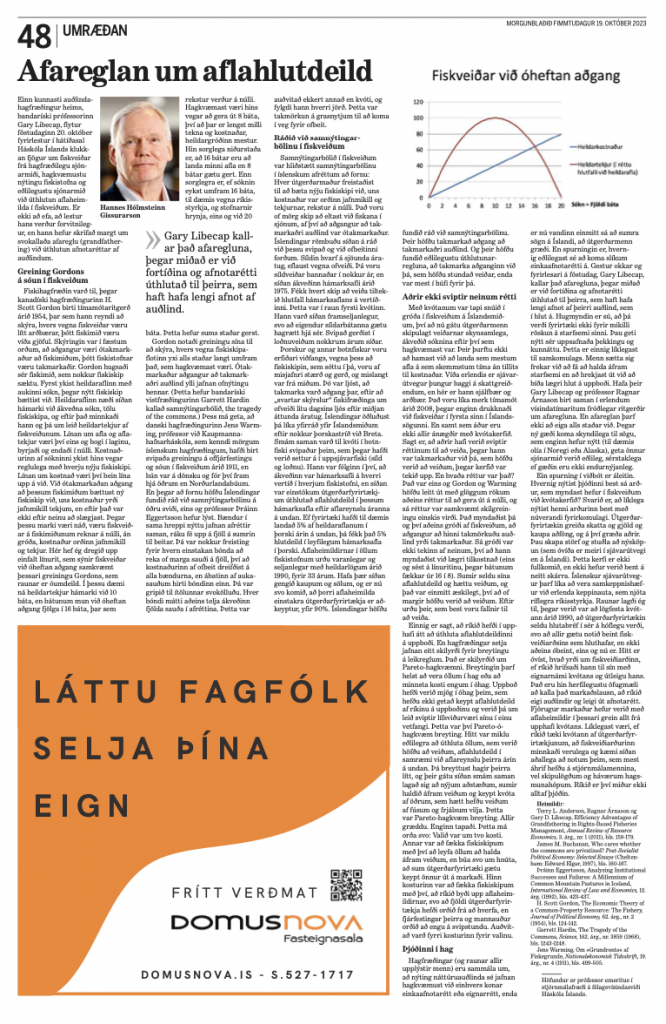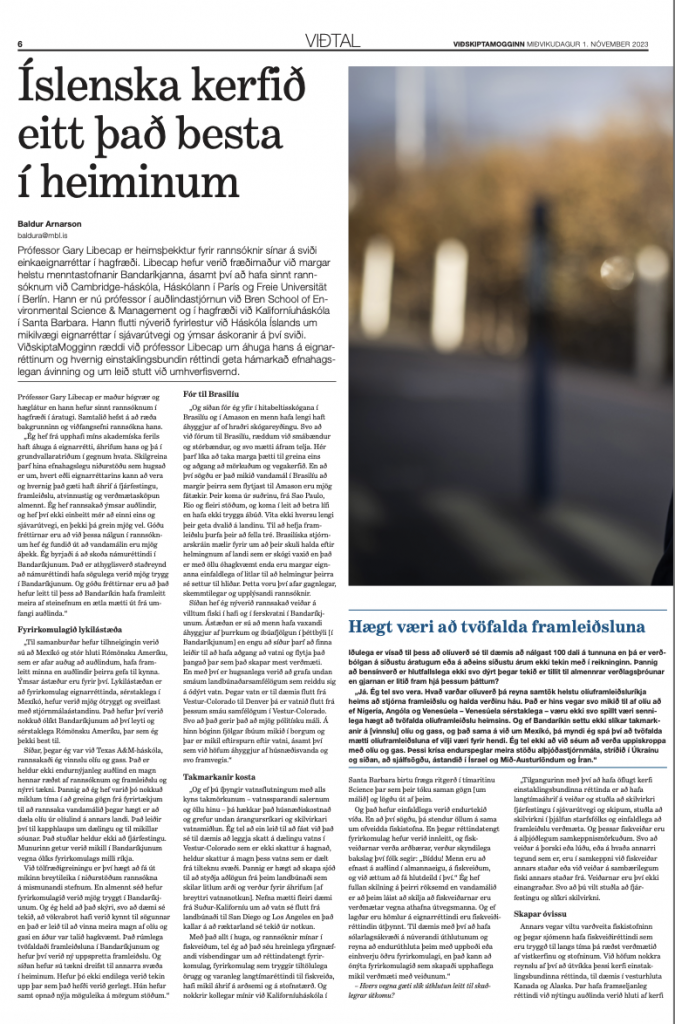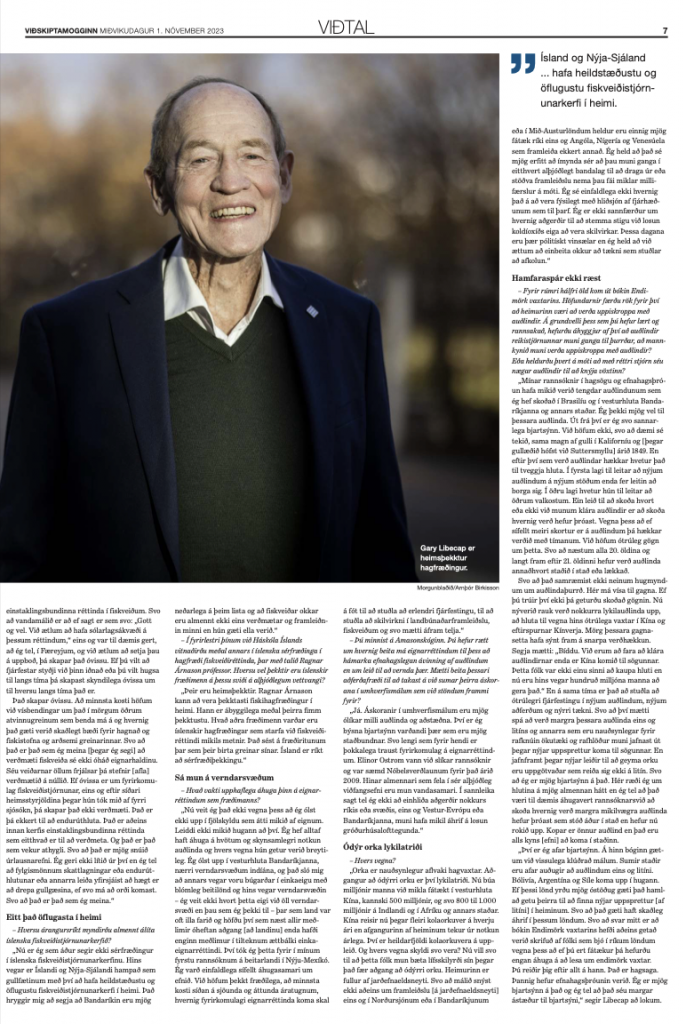Professor Gary Libecap, an internationally acknowledged authority on resource economics, gave a lecture in the Festivities Hall of the University of Iceland on 21 October 2023 about resource utilisation and private property rights. He stated the general arguments for property rights in natural resources and then moved on to their formation. It was relatively easy to form property rights in land and livestock by fencing and branding, he said. It was more complicated but nevertheless possible to form property rights to rivers and lakes, water springs and oil wells, gold and coal mines and fish stocks. When the access to a scarce resource, hitherto a commons with open access, had to be restricted, quite often so-called ‘grandfathering’ was the most efficient way of allocating property rights initially. This meant that those with a hisory of utilising the resource would get rights to it in accordance with their utilisation. This would minimise the disruption to their way of supporting themselves when access had to be restriced. It was also likely to gain their acceptance. In the Icelandic fisheries this would imply that the harvesting rights (catch quotas) being defined would initially be allocated to those who had been fishing according to catch history, which was precisely the rule adopted when the rights, or quotas, were first allocated. Before Libecap gave his lecture, Hannes H. Gissurarson, Professor Emeritus of Politics at the University of Iceland, published an article about Libecap and the idea of grandfathering.
In an interview in Morgunbladid on 1 November 2023 Libecap described his recent research, including the comparison of clearly defined and therefore efficient mining rights in the United States and the much less efficient such rights in Latin America. He also discussed the utilisation of oil and gas, and of the Amazon forest, of fish stocks and of water springs in dry regions. Libecap said that the Icelandic system of fisheries management was widely regarded as the most efficient one in the world and that Ragnar Arnason, the Icelandic Professor of Fisheries Economics, was internationally respected for his contributions to resource economics. Libecap added that natural resources were not being exhausted; the dire predictions by the authors of The Limits to Growth had turned out not to be correct.





